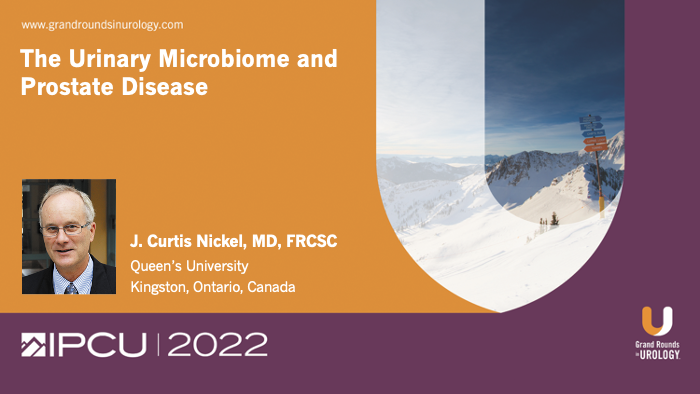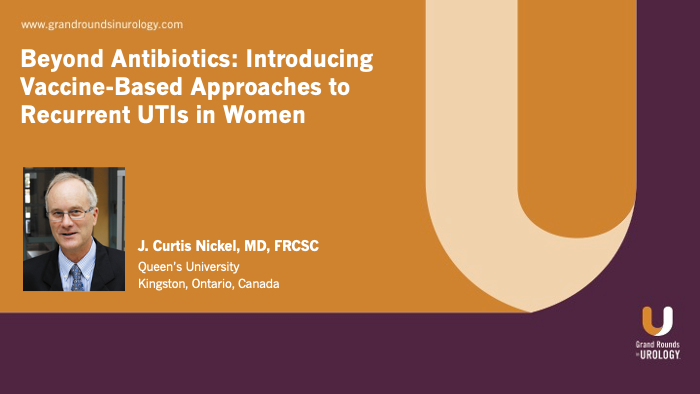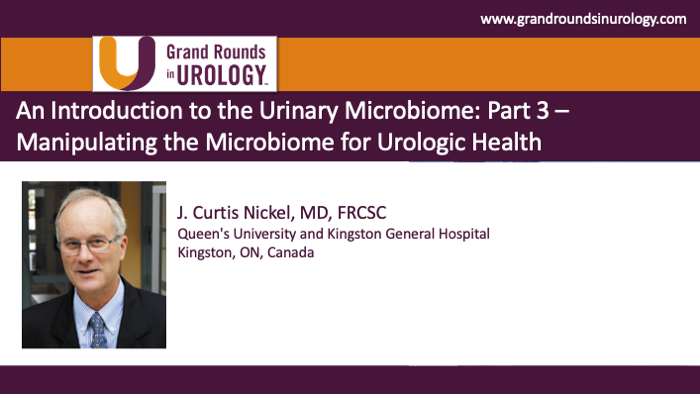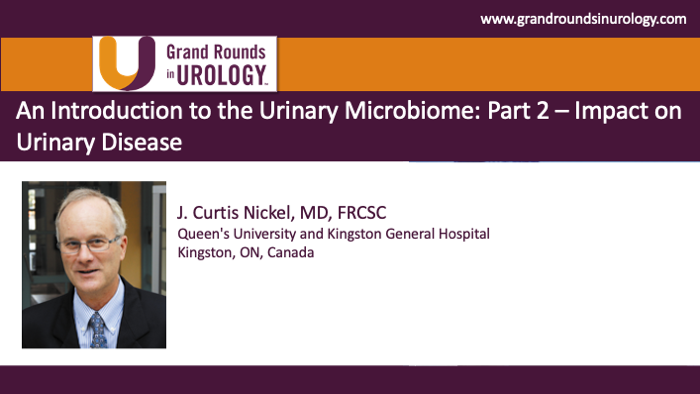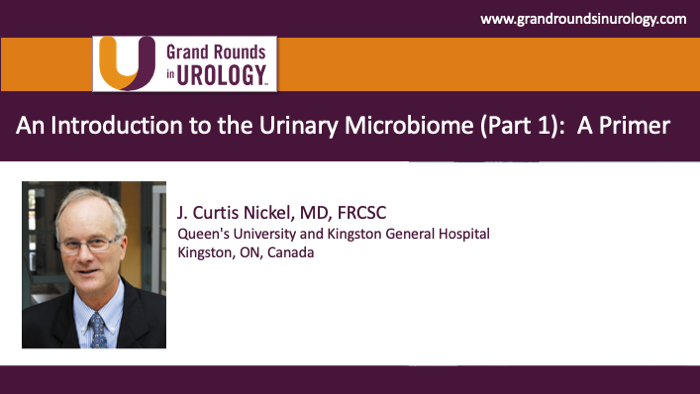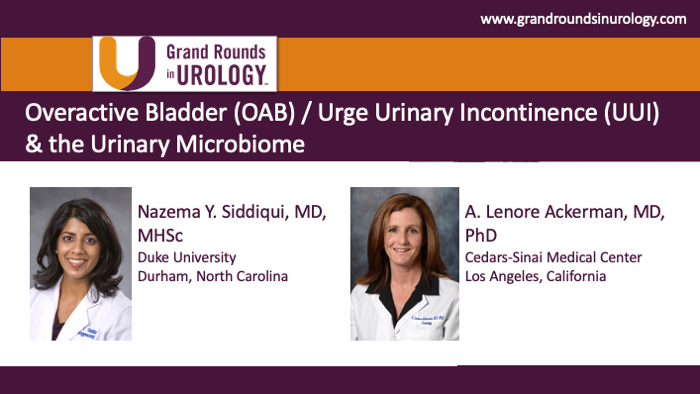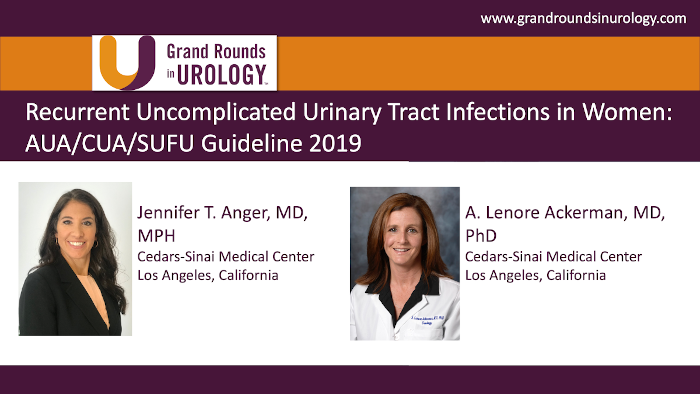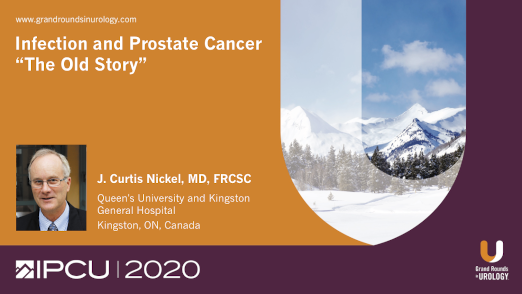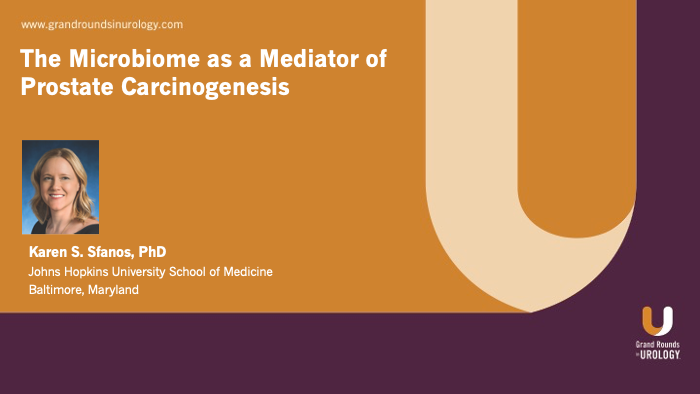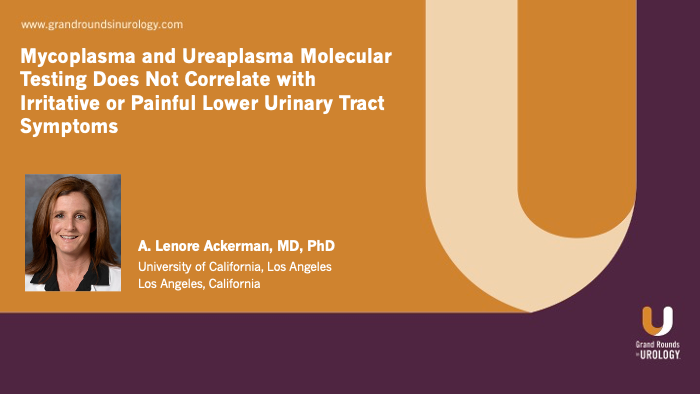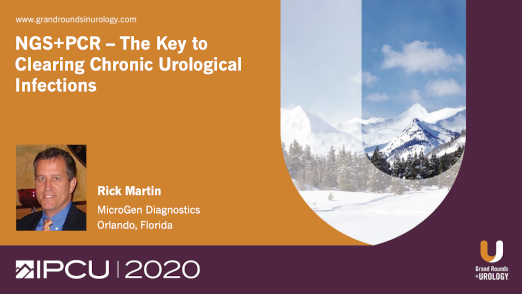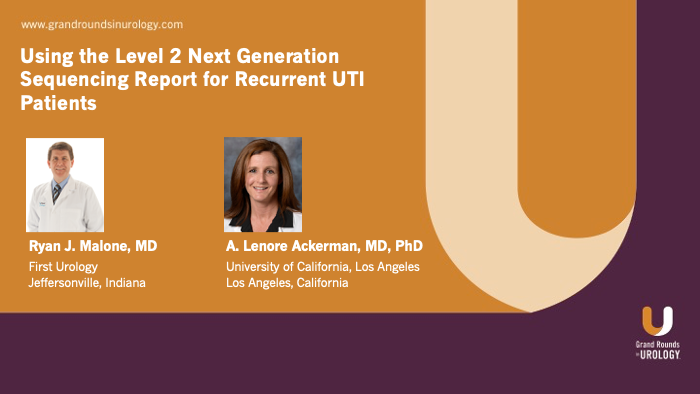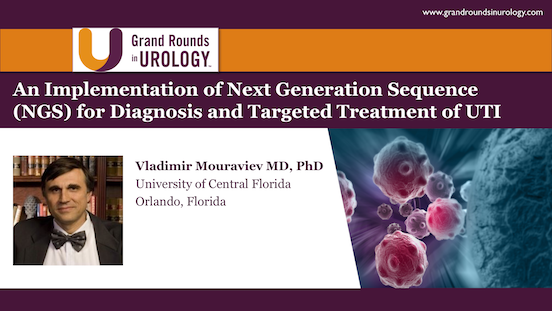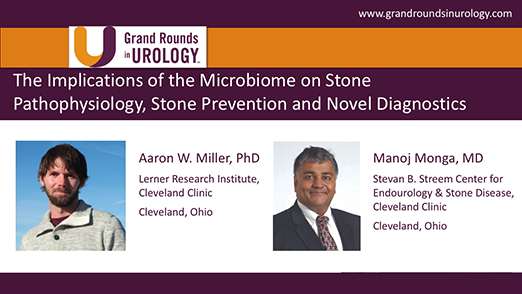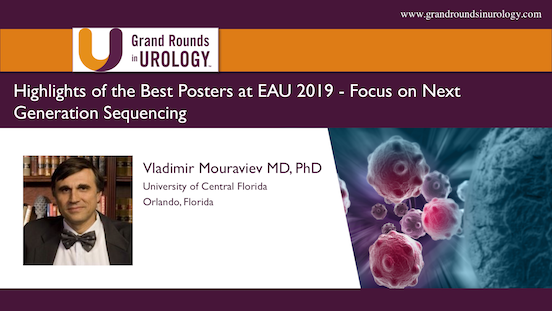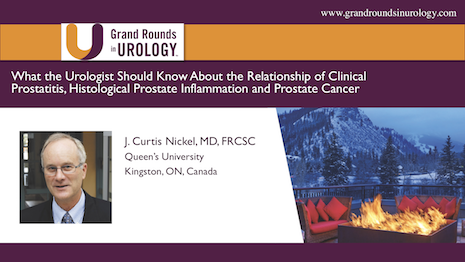A. Lenore Ackerman, MD, PhD, discusses new advances in penile implant infections detection with Gerard D. Henry, MD.
A. Lenore Ackerman, MD, PhD, Ja-Hong H. Kim, MD, and Victoria C. Scott, MD, discuss a survey of women with recurrent UTIs.
Paul H. Chung, MD, discusses infection of genitourinary implants & how next-generation DNA sequencing can be used to manage device infection.
In a conversation with A. Lenore Ackerman, MD, PhD, Section Editor of the Next Generation Microbiome and Urologic Infection Learning Center on Grand Rounds in Urology, Nicole M. Gilbert, PhD, an instructor in the Department of Pediatrics at Washington University School of Medicine, discusses her research linking urogenital microbes to recurrent urinary tract infection (rUTI).
Ngoc-Bich “Nikki” Phan Le, MD, a urologist specializing in female pelvic medicine and reconstructive surgery at the Austin Diagnostic Clinic, and A. Lenore Ackerman, MD, PhD, Assistant Professor of Surgery, Urology, and Pelvic Medicine and Reconstructive Surgery at Cedars-Sinai Medical Center and Section Editor of the Next Generation Microbiome and Urologic Infection Learning Center on Grand Rounds in Urology, discuss how to effectively use molecular diagnostics to help in the process of diagnosing and managing recurrent UTIs.
Gerard D. Henry, MD, a urologist with Ark-La-Tex Urology in Bossier City, Louisiana, discusses pathogen identification using next generation sequencing (NGS) in a urology-based setting. He goes on to describe the utility of PCR+NGS, discusses several case-studies demonstrating its superior performance compared to traditional culture, and presents the results of a single-center study demonstrating the benefit of using NGS vs traditional culture for pathogen identification in 101 patients after IPP.
Manoj Monga, MD, and Aaron W. Miller, PhD, discuss the effect of the microbiome of the gut and urinary tract on the development and prevention of stone disease. Dr. Miller discusses research into oxalate metabolism in the gut that can lead to kidney stones, how the bacteria lactobacillus crispatus may reveal clues about metabolites that can help prevent the incidence of stones, as well as a strain of E. coli that may be connected to their increase.
Vladimir Mouraviev, MD, PhD, will soon become the section editor of Grand Rounds in Urology’s soon-to-be released Next Generation Learning Center in Microbials. The European Association of Urology (EAU) will honor Dr. Muraviev this weekend during their annual meeting. The EAU has accepted two of his posters to present during their Expert-Guided Poster Tour session.
Dr. J. Curtis Nickel, MD, FRCSC, explains the relationship between acute and chronic inflammation of the prostate and prostate cancer risk, citing data from the REDUCE trial. He also discusses prostate cancer risk factors, including tumor volume, number of positive cores, and prostate atrophy.

